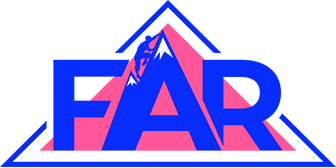
More and more states in the United States have voted to legalize the use of recreational marijuana. But as mainstream as marijuana has become (and the health benefits it can sometimes provide), it is still possible to become addicted to marijuana like any other addictive substance. Just like heroin or fentanyl, marijuana has the potential to wreak havoc on a person’s life and relationships.
Focused Addiction Recovery works to provide effective marijuana addiction treatment in North Carolina. Multiple treatment options open the door for healing and rebuilding personal relationships.
What Does
Marijuana Addiction Look Like?
Marijuana is one of the most common names for the buds produced by the cannabis sativa plant. When people refer to smoking “weed” or “dope,” they are usually referring to marijuana. However, there are cannabis products that do not use solely the buds of the plant. Most non-psychoactive CBD or hemp products (such as medicinal creams) use compounds that may also use traces of the leaves and stems.
Signs of cannabis addiction may include:
- Avoiding responsibilities to smoke marijuana
- Financial troubles as a result of purchasing marijuana (especially through illegal methods)
- Consuming marijuana in dangerous circumstances, such as while driving
- Increase in anxiety and/or paranoia
- Weight gain or loss
- Difficulties with memory
- Rapid heart rate
- Loss of ability to regulate emotions/impaired impulse control
- Damage to lungs and/or throat
- Disrupted/insufficient sleep patterns
It should be noted that the symptoms of marijuana are not the same as those of synthetic marijuana (also known as spice, K2, and potpourri).
Treatment Options for
Marijuana Addiction Treatment
If you fear you’re becoming addicted to marijuana, there are treatment options available. Marijuana may not be as “hard” as other drugs that merit stays in treatment centers, but it’s still worth time and effort to overcome the addiction. Cannabis is still an addictive substance, and it’s worth investing in your overall well-being.
A fair amount of people use marijuana as part of self-medication for a mental illness. But the anxiety that comes as a result of marijuana addiction can often exacerbate problems. Any potential calming or creative benefits of consuming cannabis quickly disappear, often leaving the user paranoid and more emotionally volatile.
If you’re unsure of how to cope with a mental health disorder without the help of cannabis, dual diagnosis treatment is likely the most effective treatment option for you. This treatment focuses on working on coping techniques and education around mental health. Patients will learn how to cope with their mental illness, and will be treated for their addiction with their condition taken into account.
If you’ve already completed addiction treatment but are still worried about maintaining your recovery, a relapse prevention program may be the best next step. These programs are specially targeted toward helping people develop resilience, be aware of their own triggers, and develop a plan to help themselves stay sober. It’s estimated that the rate of relapse drops by 50% when a patient completes a relapse prevention program. They are also reported to be more successful in staying sober long-term.
Is Marijuana
Legal in North Carolina?
It is illegal to consume or carry cannabis products in North Carolina, including marijuana. According to House Bill 766, only patients with intractable epilepsy and their caregivers may use hemp products containing 0.9% of THC by weight. This adds an extra, dangerous element to cannabis addiction — in order to procure marijuana to sate one’s addiction, you have to get it from an illegal source.
Legal cannabis consumption would necessitate travel to Virginia (or another nearby state) where recreational cannabis is legal. But it is a crime to transport cannabis illegally across state lines. The 2020 DEA resource guide states that someone caught transporting less than 50 kilograms of marijuana (or up to 49 cannabis plants) will result in no less than five years in jail and/or a $250,000 fine. If it’s not the perpetrator’s first offense, they could face no less than 10 years in jail and/or a $500,000 fine.

